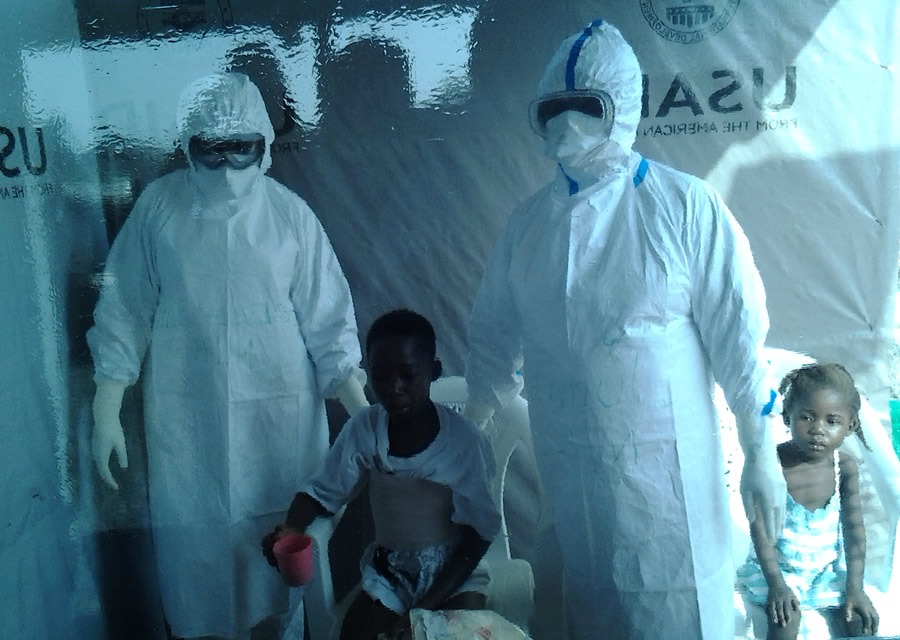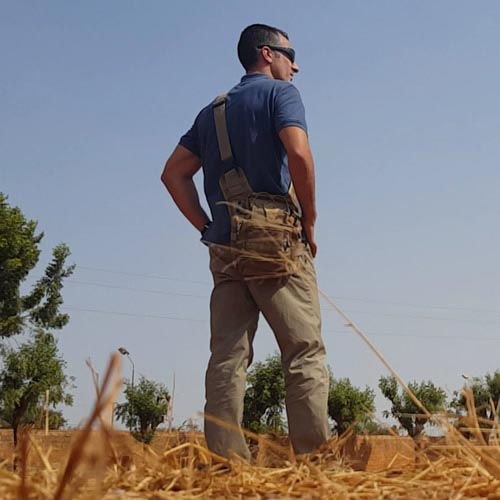Liberia Celestine Olale
Ebola Treatment Units

I feel like I made a big difference in the life of the Ebola victims. I’m proud that I was one of the people who went there to save lives and help strengthen the healthcare system.
We also had to respond to any calls that we got from the village if there was a patient showing symptoms. We offered ambulance services for the Ebola victims, taking them from the village to the unit. We helped make the community safe.
As the chief nurse I lead close to 70 registered nurses (RNs), 20 foreign medical nurses, and 50 healthcare assistants. There were close to 500 local nationals working on the team too.
There were challenges: the terrain was tricky, and most of the time the patients could not tell us exactly how the illness had started or how they got infected. They were nervous to disclose the number of people affected. There were also infrastructure challenges.
Through the social workers who we sent back to the villages we got the real story about what happened to our patients and lots of other helpful information. We had a total of around 270 clients who came in. 50 had Ebola and were healed. Some were not Ebola positive so we discharged them. The survival rate for Ebola, however, is very low.
Even now, I feel like I made a big difference in the life of the Ebola victims. It is such a rare disease. I’m proud that I was one of the people who went there to save lives and help strengthen the healthcare system.
I was there for 1 year and 2 months. After the Ebola pandemic was declared over we returned to the community with mobile health care clinics. The healthcare system still had issues – we had to strengthen it. We started mobile health clinics in villages that were hard to reach. There we would do assessments, health messages, screening, diagnosis and treatment.
The Ebola victims were stigmatised in their community, they were very reluctant to disclose their health status. The mobile clinics were so impactful: we gave a lot of health messaging to the community and the people started accepting the survivors back. It was really positive.
The mobile clinics were so impactful: we gave a lot of health messaging to the community and the people started accepting the survivors back.
I think the kind of qualities you need in this situation, in a crisis where you don’t know what is around the corner, is someone with experience with disaster management, someone who is well trained, with years of experience in different fields. And also someone who has experience working with minorities and hard to reach areas.
Someone who I won’t forget is one of the Ebola survivors. His name is Golo Pala Njani. After his recovery, he worked with us in the ETU as a social worker in the training centres. He had been one of our very first patients and after counselling, he was able to educate others. He really made a difference in the community and helped others to start viewing Ebola survivors as normal people.
After the pandemic subsided we focused on the training centres where we taught the health care workers, nurses and doctors on infection, prevention and control.
This experience definitely changed me. Even just travelling is an education on its own: different cultures, and learning how to carry out procedures the way other people from other countries do them. We all taught each other a lot. I sharpened my leadership and management skills, training skills, and I learnt so much. I will never forget it.
STORIES FROM
WESTERN AFRICA
Carlos Serrano Mesa, Mali
OPS Officer for Demining

